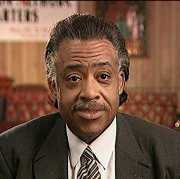 I’m tired of being a ventriloquist dummy in the movies. We do have our own voices you know? We do have beating hearts and amorphous souls. We exist in every dimension. We exist at great distances and we exist in focus. We do not want to rape your virtuous young maidens (Birth of a Nation, 1915). We are not your ride or die servants (Gone With the Wind, 1939). We are not your wise yet shockingly docile sidekicks (Casablanca, 1942). We are not here to prostitute the innocence of your daughters (The Mack, 1973) and kill your hardworking, blue-collar, tough, rugged, but loveable fathers (Colors, 1988). Nor do we want you to make us feel good (Monster’s Ball, 2002).
I’m tired of being a ventriloquist dummy in the movies. We do have our own voices you know? We do have beating hearts and amorphous souls. We exist in every dimension. We exist at great distances and we exist in focus. We do not want to rape your virtuous young maidens (Birth of a Nation, 1915). We are not your ride or die servants (Gone With the Wind, 1939). We are not your wise yet shockingly docile sidekicks (Casablanca, 1942). We are not here to prostitute the innocence of your daughters (The Mack, 1973) and kill your hardworking, blue-collar, tough, rugged, but loveable fathers (Colors, 1988). Nor do we want you to make us feel good (Monster’s Ball, 2002).
We are not circus lions who only roar when cracked by the lash but are otherwise harmless creatures (Ali, 2001) and our stories don’t necessarily end happily when we finally achieve your capitalistic wet dreams (Ray, 2004 The Pursuit of Happyness, 2006).
Our stories are told in beauty shops, on front porches, and in barbershops. They’re told at bus stops, in county lines, and in the county jail. They’re told in study groups, at Baptist churches, and in hot kitchens. And our stories are told the best when you aren’t there; therefore, you really don’t know us. What you do know is essentially nothing more than a shadow. Yes this shadow is dark like us but it is not nearly as soulful. It is not nearly as dynamic. It is not complicated nor is it multifaceted. It’s not multidimensional or unique. It isn’t bodaciously shy or passionately indifferent. See the thing is that when you tell our stories you are guessing and we know that. We also know that when you tell our stories you’re telling them to an audience of your own peers and that we really don’t matter. We know what’s real.
We can tell the difference between your voice and Big Mama’s. We know that our stories come from Arkansas and Tennessee. The Delta here and The Delta back there. Our stories were carried up the river by Pharaohs before they were carried down the river by slaves. Our stories are told with fingers in faces, knuckles slapping against hands, shoulders rolling, and tongues clicking. Our griots spit game to judges and parole officers and for the most part they never make it to Hollywood because they’ve been trapped in the hood.
Granted, sometimes when you tell our stories you get it right but you are still guessing (I suppose that some ventriloquist are better than others). And let me just say that when you do your film on Nina Simone The High Priestess of Soul, I hope that you get it right for your sake. For the time is rapidly approaching when we will be speaking for ourselves and we will leave you to your own guessing games. Yeah, imagine that? Close your eyes and try to guess how our voices sound when you are not around. Imagine a day when we control our own bodies, our own minds, our own shadows, and our own reflection, and all you can do is sit in the back of the room and listen to us speak. I can only smile at the thought of such a revolutionary exchange.
-YB

